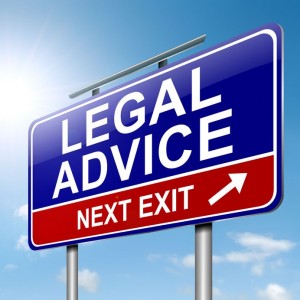Arrested for Weapons-Based Crimes: Understanding the Charges, Penalties, and the Role of Legal Representation

Introduction
Weapons-based crimes are serious offenses that involve the illegal use, possession, or distribution of firearms and other weapons. These crimes carry significant legal penalties and can have long-lasting consequences on an individual’s life. This article explores the types of weapons-based crimes, the potential penalties, and how a lawyer can provide critical support and defense in such cases.
Types of Weapons-Based Crimes
Weapons-based crimes encompass a wide range of offenses, including but not limited to:
- Illegal Possession of a Firearm: Possessing a firearm without the necessary permits or licenses, or by individuals prohibited from owning firearms due to prior convictions or other legal restrictions.
- Unlawful Discharge of a Firearm: Firing a weapon in prohibited areas or in a manner that endangers others.
- Carrying a Concealed Weapon: Carrying a hidden firearm or weapon without the proper permits.
- Armed Robbery: Using a weapon to commit theft or other violent crimes.
- Assault with a Deadly Weapon: Using a weapon to threaten or inflict harm on another person.
- Trafficking and Distribution of Weapons: Illegally buying, selling, or distributing firearms and other weapons.
- Possession of Prohibited Weapons: Possessing weapons that are banned by law, such as certain types of knives, explosives, or military-grade firearms.
Possible Penalties and Punishments
The penalties for weapons-based crimes can be severe and vary depending on the nature and severity of the offense. They include:
- Imprisonment: Many weapons-based crimes carry mandatory prison sentences. The length of the sentence can vary significantly based on the offense and any prior criminal history.
- Fines: Financial penalties can be substantial, often reaching thousands of dollars, depending on the severity of the crime and the circumstances surrounding it.
- Probation: Some offenders may be placed on probation instead of or in addition to serving time in prison. Probation conditions often include regular check-ins with a probation officer, attending counseling, and avoiding certain activities or locations.
- Community Service: Courts may mandate community service as part of the sentencing, requiring offenders to contribute a certain number of hours to community improvement projects.
- Loss of Firearm Rights: Convictions for weapons-based crimes often result in the loss of the right to own or possess firearms in the future.
- Enhanced Sentences: Crimes committed with a weapon often carry enhanced sentences, meaning that the penalties are more severe than for similar crimes committed without a weapon.
The Role of a Lawyer
Having experienced legal representation is crucial when facing charges for weapons-based crimes. A lawyer can assist in various ways:
- Legal Advice and Strategy: A lawyer provides expert advice on your rights, potential defenses, and the best course of action. They will develop a defense strategy tailored to your specific situation.
- Negotiation: Skilled attorneys can negotiate with prosecutors to potentially reduce charges or secure plea deals that minimize penalties.
- Defense: Your lawyer will examine the evidence, identify weaknesses in the prosecution’s case, and develop a robust defense. This can include challenging the legality of evidence, questioning the credibility of witnesses, and presenting exculpatory evidence.
- Court Representation: A lawyer will represent you in court, ensuring that your rights are protected and advocating on your behalf throughout the trial.
- Mitigation: If a conviction seems likely, a lawyer can work to mitigate the consequences, arguing for reduced sentences, probation, or alternative penalties.
- Support and Guidance: Beyond the legal aspects, a lawyer can provide support and guidance to help you manage the emotional and social impacts of being charged with a weapons-based crime.
Conclusion
Being arrested for a weapons-based crime is a serious matter with potentially severe and long-lasting consequences. Understanding the types of crimes, the possible penalties, and the critical role a lawyer can play in your defense is essential. If you face such charges, securing experienced legal representation is your best chance to navigate the complex legal landscape and achieve the most favorable outcome possible. A skilled lawyer can make a significant difference in protecting your rights and minimizing the impact on your life.
